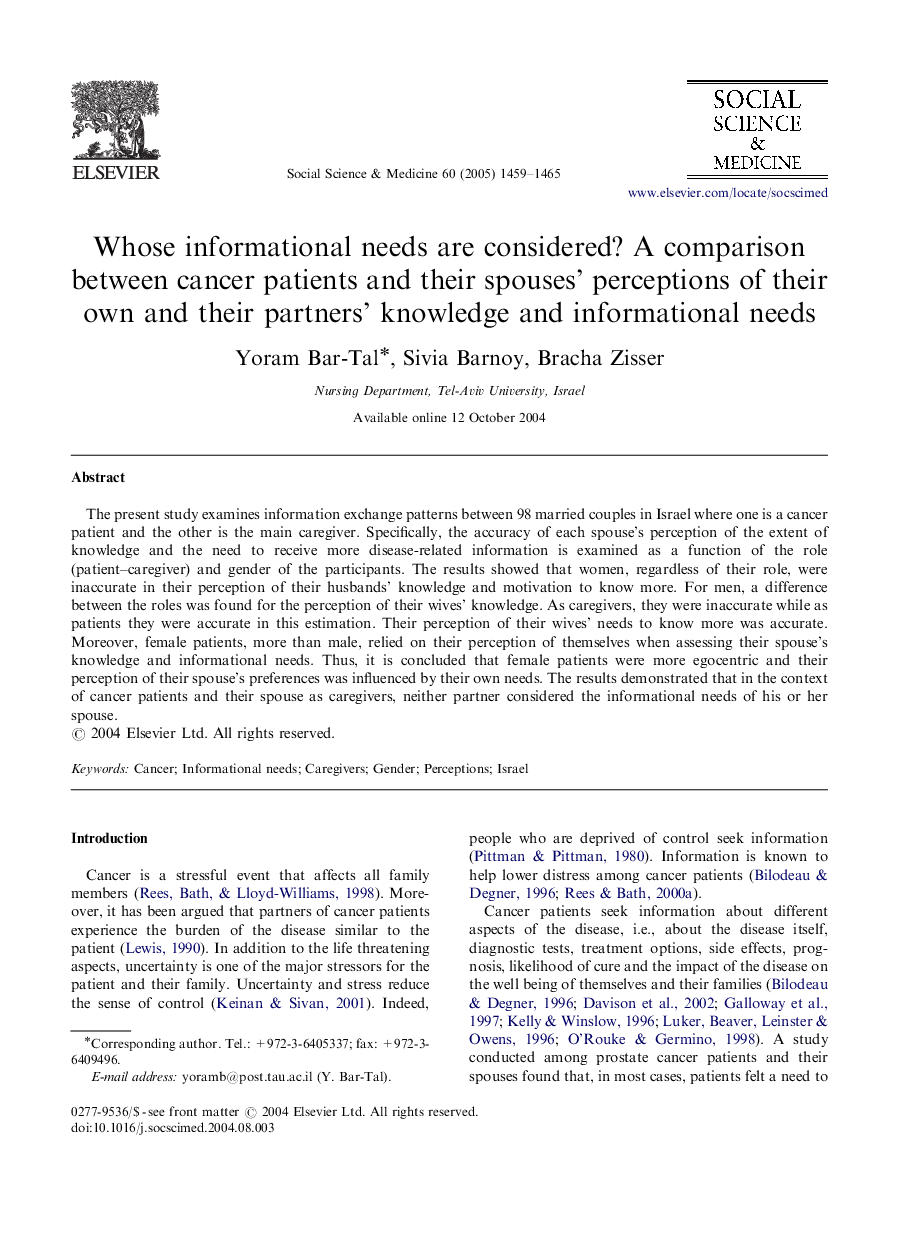| Article ID | Journal | Published Year | Pages | File Type |
|---|---|---|---|---|
| 10473261 | Social Science & Medicine | 2005 | 7 Pages |
Abstract
The present study examines information exchange patterns between 98 married couples in Israel where one is a cancer patient and the other is the main caregiver. Specifically, the accuracy of each spouse's perception of the extent of knowledge and the need to receive more disease-related information is examined as a function of the role (patient-caregiver) and gender of the participants. The results showed that women, regardless of their role, were inaccurate in their perception of their husbands' knowledge and motivation to know more. For men, a difference between the roles was found for the perception of their wives' knowledge. As caregivers, they were inaccurate while as patients they were accurate in this estimation. Their perception of their wives' needs to know more was accurate. Moreover, female patients, more than male, relied on their perception of themselves when assessing their spouse's knowledge and informational needs. Thus, it is concluded that female patients were more egocentric and their perception of their spouse's preferences was influenced by their own needs. The results demonstrated that in the context of cancer patients and their spouse as caregivers, neither partner considered the informational needs of his or her spouse.
Related Topics
Health Sciences
Medicine and Dentistry
Public Health and Health Policy
Authors
Yoram Bar-Tal, Sivia Barnoy, Bracha Zisser,
